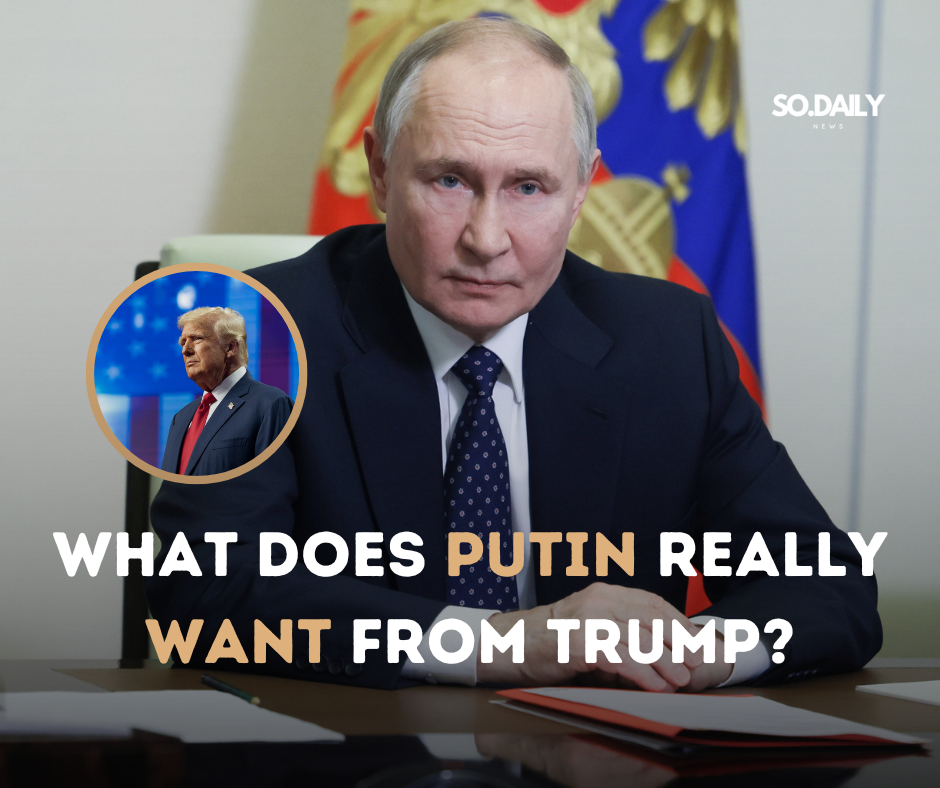The relationship between Russian President Vladimir Putin and former U.S. President Donald Trump has been a topic of speculation and concern for years. With Trump positioning himself as the likely Republican candidate for the 2024 election, discussions about how a potential second Trump presidency might impact U.S.-Russia relations are intensifying. Recent reports indicate that Putin and Trump have been in contact, with discussions reportedly focused on the ongoing war in Ukraine and broader geopolitical issues. But what does Putin truly want from Trump, and how might this affect global stability?
Putin’s Strategic Interests
At the core of Putin’s objectives is his desire to reshape the global balance of power in Russia’s favor. Over the years, he has worked to weaken NATO, expand Russian influence in Eastern Europe, and undermine Western democracies. His interactions with Trump appear to be part of a larger strategy to secure concessions from the U.S. that would further these goals.
One of Putin’s primary concerns is the war in Ukraine. While Trump has claimed that he could negotiate an end to the conflict within 24 hours, experts believe that any agreement brokered under his leadership would likely involve significant concessions to Russia. This could include freezing the conflict in a way that allows Russia to retain control over occupied Ukrainian territories or pressuring Ukraine to accept a settlement that favors Moscow.
The Role of Sanctions and Military Aid
Since the start of Russia’s full-scale invasion of Ukraine in 2022, the U.S. and its allies have imposed severe economic sanctions on Russia. These sanctions have targeted Russian oligarchs, financial institutions, and critical industries, significantly impacting the country’s economy. Additionally, Western military aid has played a crucial role in Ukraine’s ability to resist Russian advances.
Putin likely sees Trump as a key player in potentially easing sanctions and reducing military support for Ukraine. Throughout his presidency, Trump expressed skepticism about foreign aid and was critical of NATO allies for not contributing more to defense spending. If Trump were to return to the White House, he could halt or significantly reduce U.S. military aid to Ukraine, weakening Ukraine’s position and allowing Russia to consolidate its territorial gains.
Disrupting NATO and Western Unity
Another major goal for Putin is to weaken NATO, the military alliance that has long been a counterbalance to Russian aggression. Under Trump’s first presidency, he repeatedly questioned the necessity of NATO and even suggested that the U.S. might not defend certain member states if they were attacked. This kind of rhetoric directly benefits Putin, as it creates uncertainty among America’s European allies and undermines collective security.
If Trump were to return to power and take a more isolationist approach, it could fracture NATO’s unity and embolden Russia to act more aggressively in Eastern Europe. Countries like the Baltic states and Poland, which have been strong supporters of Ukraine, would find themselves in a more vulnerable position. This aligns perfectly with Putin’s long-term goal of reasserting Russian dominance in the region.
Influencing U.S. Politics and Public Opinion
Putin is also keenly aware of the impact that U.S. political polarization has on global affairs. By engaging with Trump and offering the prospect of negotiations, he can insert himself into the American political debate, influencing public opinion and shaping discussions around U.S. foreign policy.
Trump’s base has shown a willingness to embrace a less confrontational approach to Russia, and if Putin can reinforce the idea that diplomacy is the best path forward, he may be able to reduce bipartisan support for Ukraine. This, in turn, could lead to a shift in U.S. policy that aligns more closely with Russia’s interests.
The Broader Implications
The possibility of Trump returning to office presents a significant opportunity for Putin to achieve strategic gains without direct military confrontation with the U.S. By fostering a relationship with Trump, Putin can pursue his goals through diplomacy, negotiation, and subtle political maneuvering rather than outright aggression.
If the U.S. reduces its support for Ukraine, weakens its commitment to NATO, or eases sanctions on Russia, the global balance of power could shift dramatically. European allies would be forced to reconsider their defense strategies, and Russia would gain greater leverage in shaping the future of Eastern Europe.
Ultimately, what Putin wants from Trump is not just a single concession but a broader realignment of U.S. foreign policy—one that prioritizes American disengagement from global conflicts and allows Russia more freedom to act without Western interference. Whether or not he will succeed depends on the political landscape in the U.S. and how the next administration approaches relations with Moscow.
For now, Putin appears to be playing the long game, carefully positioning himself to take advantage of any changes in U.S. leadership. If Trump returns to power, the world could see a dramatically different approach to Russia, one that could redefine the geopolitical landscape for years to come.
